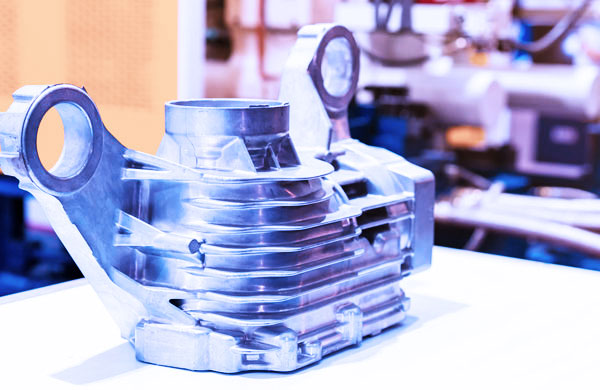The Ultimate Guide To Stahl Specialty Company
The Ultimate Guide To Stahl Specialty Company
Blog Article
The 6-Second Trick For Stahl Specialty Company
Table of ContentsThe Ultimate Guide To Stahl Specialty CompanyAn Unbiased View of Stahl Specialty CompanyThings about Stahl Specialty CompanyOur Stahl Specialty Company PDFsStahl Specialty Company for Dummies
There are many minor differences between wrought and cast aluminum alloys, such as that cast alloys can consist of more considerable quantities of various other steels than functioned alloys. The most remarkable difference between these alloys is the construction procedure through which they will go to supply the last product. Apart from some surface treatments, cast alloys will exit their mold in nearly the precise solid kind wanted, whereas functioned alloys will undergo several alterations while in their strong state.If you think that a wrought alloy might be the very best for your project, take an appearance at a few of our write-ups that clarify even more regarding specific functioned alloys, such as Alloy 6061 and Alloy 6063. On the various other hand, if you assume an actors alloy would certainly be much better for you, you can find out extra about some actors alloys in our Alloy 380 and Alloy 383 posts (coming quickly).

Having the experience and market understanding to craft your castings for ideal production and high quality outcomes will streamline the task. Making light weight aluminum castings needs a complicated collection of processes to attain the ideal results. When picking a brand-new light weight aluminum foundry to companion with, ensure they have substantial market experience and are well-informed concerning all facets of the light weight aluminum casting process: style, production, product analysis, and product screening.
The Definitive Guide to Stahl Specialty Company
The foundry must additionally have a tested record of delivering outstanding products that meet or surpass consumer expectations. Quality assurance must also be at the top of your listing when choosing a light weight aluminum factory. By collaborating with a certified foundry who complies with the standards for quality assurance, you can safeguard the integrity of your item and ensure it satisfies your specifications.
By choosing a company that offers services that fulfill or exceed your item demands, you can be sure that your task will be completed with the utmost accuracy and performance. Different parts need various manufacturing methods to cast light weight aluminum, such as sand spreading or pass away casting.

Pass away spreading is the name provided to the process of producing complex steel parts via usage of molds of the component, also known as dies. It creates more parts than any other process, with a high degree of i thought about this accuracy and repeatability. There are 3 sub-processes that drop under the group of die spreading: gravity die casting (or permanent mold and mildew spreading), low-pressure die casting and high-pressure die casting.
After the pureness of the alloy is examined, passes away are created. To prepare the dies for spreading, it is vital that the passes away are clean, so that no residue from previous productions remain.
The pure metal, likewise understood as ingot, is included in the heater and maintained the molten temperature of the steel, which is after that moved to the injection chamber and infused right into the die. The pressure is after that maintained as the metal strengthens - Aluminum Casting. Once the steel solidifies, the cooling procedure starts
The thicker the wall surface of the part, the longer the cooling time due to the fact that of the quantity of interior metal that likewise needs to cool. After the component is totally cooled down, the die cuts in half open and an ejection device presses the part out. Adhering to the ejection, the die is closed for the following shot cycle.
The Basic Principles Of Stahl Specialty Company

Today, leading makers use x-ray testing to see the entire inside of parts without reducing into them. To get to the finished product, there are 3 key alloys utilized as die casting material to pick from: zinc, light weight aluminum and magnesium.
Zinc is one of the most secondhand alloys for die casting due to its reduced price of raw materials. Its deterioration resistance also allows the components to be lengthy long-term, and it is one of the extra castable alloys due to its reduced melting point - Foundry.
Stahl Specialty Company Fundamentals Explained
As mentioned, this alloy is among one of the most frequently used, yet produces will, at times, choose light weight aluminum over zinc because of light weight aluminum's production advantages. Aluminum is extremely affordable and among the much more versatile alloys. Light weight aluminum is made use of for a variety of different items and markets anything from home window structures to aerospace materials.
Report this page